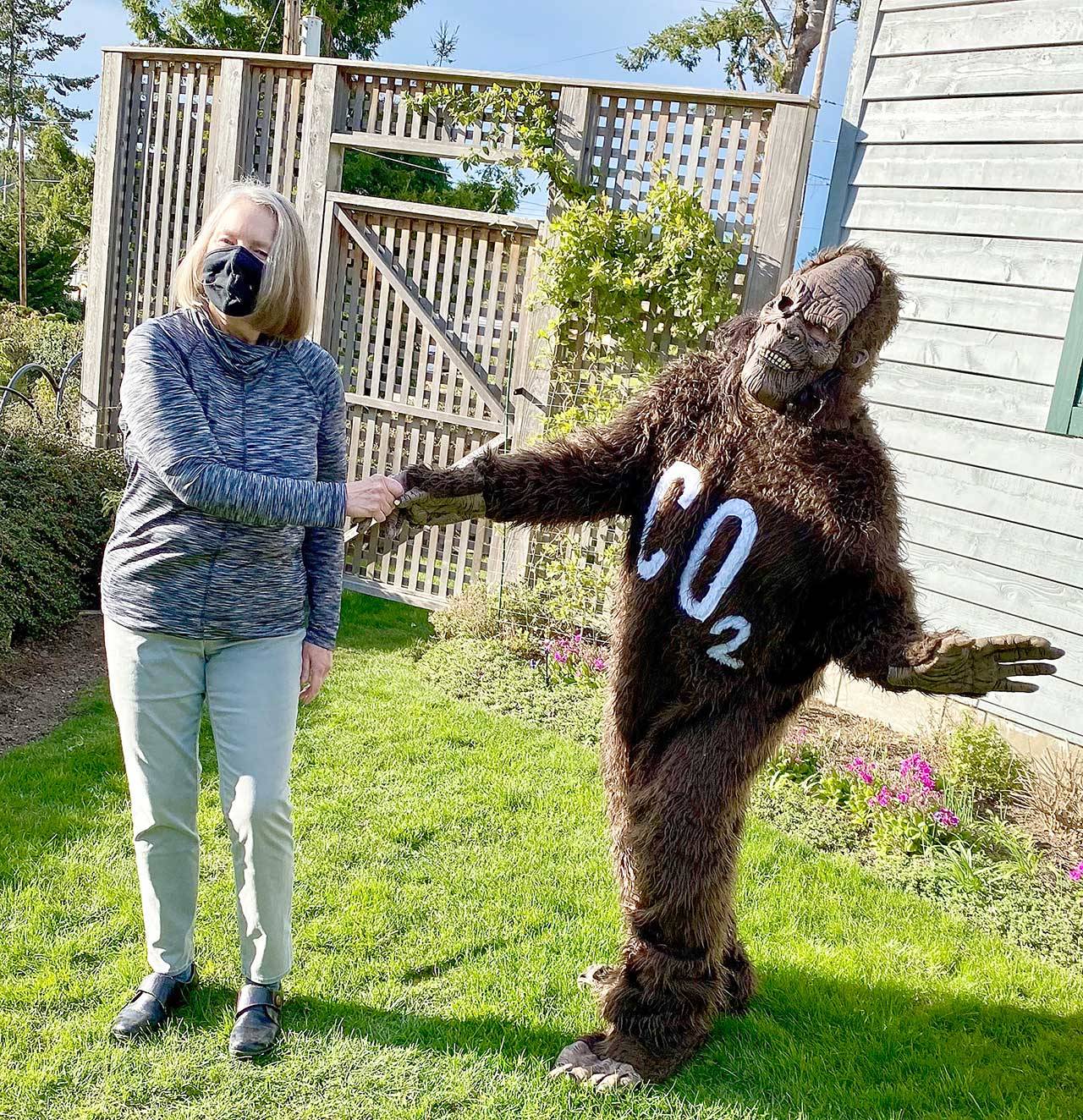PORT TOWNSEND — After a full month of tracking their carbon footprints, five teams of Jefferson County residents got together virtually Sunday night to hear the winners of Taming Bigfoot 2021, a contest about living more lightly on the Earth.
The competition, organized by Local 20/20 of Jefferson County’s Climate Action group, invited the public in January to measure the greenhouse gas emissions from their daily living.
Thirty-nine people signed up, teams were formed, and off they went Feb. 1 to monitor their transportation, home heating, eating and shopping activities.
“The lead position changed several times, but by the end of the month, the team with the lowest team footprint was the Carbonites, led by Marley Loomis, with a team footprint of 2,203 pounds of CO2,” reported Bob Bindschadler, a Taming Bigfoot organizer.
That team had seven people on it, so each averaged about 315 pounds of carbon dioxide emissions.
The Taming Bigfoot individual with the lowest total carbon footprint was Carol Cummins of Port Townsend, who measured 78.5 pounds of CO2 generated in February.
If Cummins were to keep her footprint that light all year, for an annual total of 942 pounds, that would be a stunningly low amount compared with that of the average American.
According to the Emissions Database for Global Atmospheric Research, U.S. per capita emissions of carbon dioxide reach 15.52 tons per year.
“If we want to keep from cooking the planet,” each resident of Earth must reduce his or her carbon emissions to a fraction of that, said Local 20/20 Climate Action Group researcher Laura Tucker.
Taming Bigfoot team members experienced an awakening. While some knew the power of home gardening, a low-meat diet and electric cars in keeping greenhouses gases down, they learned too that a fire in the fireplace and a drive from Jefferson to Clallam county have heavy footprints.
Taking a Subaru at 27 miles per gallon from Port Townsend to Port Angeles and back, for example, generates 68 pounds of carbon dioxide.
At the same time, participants such as Cummins found a saving grace in the form of a ductless electric heat pump.
“It’s made a huge difference,” she said, adding she also enjoyed the Jefferson County Public Utilities District’s rebate for her choice.
The contest “was a great opportunity to look at our everyday habits, and kind of tighten up some of those things we’ve become casual about,” such as water use, she added.
“A lot of us chose not to eat meat,” said Greg Brotherton, who led the Taming Bigfoot team called Feral Nephilim.
Brotherton, Jefferson County’s District 3 commissioner, also said a team member skipped ferry trips and drove an electric car around the Hood Canal to reduce carbon output.
On top of everything, Taming Bigfoot contestants won prizes: Cummins got an Earth Machine composter donated by Jefferson County Public Health while the Carbonites won a cubic yard of biochar donated by Olympic Biochar.
In honor of all participants, the North Olympic Salmon Coalition planted 600 Sitka spruce and western red cedar trees in the county.
“You can make changes that make a difference,” Cummins said.
“That was my biggest takeaway.”
________
Jefferson County senior reporter Diane Urbani de la Paz can be reached at 360-417-3509 or durbanidelapaz@peninsuladailynews.com.

